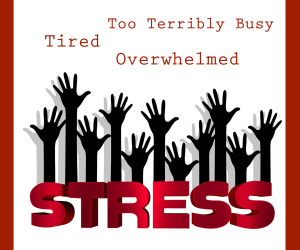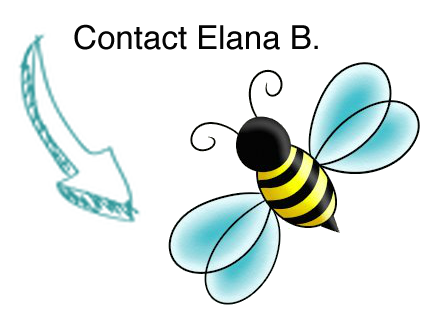By Elana B. Award-winning writer, advertiser, speaker and internationally published author
Anxiety is a normal human emotion that everyone experiences at some time in life. Many people feel anxious or nervous when faced with a problem at work, before taking an exam, getting married, or becoming a parent, changing jobs, getting a divorce or coping with illness. There are others who get nervous meeting a new boss or co-worker, either hoping to muster up to an employers expectations or worried about the ability to work cohesively with a team member. The discomfort that “anxiety” brings into all of these situations is considered normal and even beneficial. However, as we take this wild journey through life filled with ups and downs, victories and losses, there are many important life events, good and bad, that can cause varying amounts of stress and anxiety.
 The main difference between normal anxiety and problematic anxiety is the “cause of the anxiety” and the “intensity of the occurrence.” Normal anxiety is intermittent and is expected during certain situations. Certain dangerous situations that trigger the fight-or-flight stress response may make you feel as though danger is everywhere. If your anxiety subsides as the threat or fear is no longer present, then your anxiety falls under the “normal and beneficial” category.
The main difference between normal anxiety and problematic anxiety is the “cause of the anxiety” and the “intensity of the occurrence.” Normal anxiety is intermittent and is expected during certain situations. Certain dangerous situations that trigger the fight-or-flight stress response may make you feel as though danger is everywhere. If your anxiety subsides as the threat or fear is no longer present, then your anxiety falls under the “normal and beneficial” category.
When anxiety lingers and manifests into a full blown anxiety attack that doesn’t subside and you are left feeling helpless and afraid, these problems tend to be chronic, irrational and can greatly interfere with many “normal” life functions.
So how do you know for certain if your anxiety is problematic or chronic?
When you believe you are going through a phase or you justify the extreme feelings by rationalizing how stressful your life is, this is a problem. Certainly it may be situational; nevertheless, if you are feeling incessant worry, problems with concentration, and memory problems, and the anxiety is so intense that it causes family, social, and work difficulties, then your anxiety should be addressed by a professional immediately. If left unchecked, problematic anxiety may lead to an anxiety disorder.
Symptoms of anxiety and what makes it a full-blown panic attack?
Anxiety generally intensifies over a period of time and is highly connected to excessive worry. The symptoms of anxiety are very similar to the symptoms of panic attacks and may include:
• Muscle tension
• Disturbed sleep
• Difficulty concentrating
• Fatigue
• Restlessness
• Irritability
• Increased startle response
• Increased heart rate
• Shortness of breath
• Dizziness
• Feelings of panic, fear, jitters or uneasiness
• Heart palpitations
And can also include:
• Nausea
• Headaches
• Feelings/sounds of waves crashing in your head and/or body
[adinserter block=”5″]
So what is an important distinction between anxiety and a panic attack?
Panic attacks
• Generally come on quickly becoming more intense for 10 minutes.
• The physical symptoms of anxiety during a panic attack can be severe and include a thumping heart (palpitations), trembling, feeling short of breath, chest pains, feeling faint, numbness, or pins and needles.
• Each panic attack usually lasts 5-10 minutes, but sometimes they come in waves for up to an hour or more.
Anxiety
• Unlike a panic attack, the symptoms of anxiety still cause fear and an uneasy feeling, but anxiety is less intense and may be persistent and long lasting, sometimes days, weeks or months.
If you find that your anxiety is not ebbing quickly after someone almost slams into you while driving on the road, or if it remains nail-biting anxiety even after you have made it through the Freeway herd of traffic and are at home, your anxiety might fit into the category of an anxiety disorder. So whether you are dealing with panic, persistent anxiety or both, effective treatment is available.
 So what is the best way to help anxiety?
So what is the best way to help anxiety?
• Learn relaxation techniques
• Find ways to relieve or eliminate stress
• Yoga
• Meditation
• Seek counseling by a licensed therapist
• Interview a licensed therapist first to make sure that you are compatible
• Limit or avoid caffeine, energy drinks, and other stimulants
• Get out in the fresh air and take a walk
• Listen to peaceful music
• Make sure you are eating a healthy, well-balanced diet
• Watch a comedy
• Exercise
• Become an endorphin junkie
When you become excited about exercise and your body starts releasing those magic stress-relieving hormones… you should feel better.
If none of the ideas listed above help you relax, make certain you call and schedule a visit with a psychologist or licensed therapist. Reach out for support. Also, get a check-up with your medical health care professional to make certain that no underlying condition is causing or adding to your anxiety.
Always consult with your doctor before using any health treatment, plan, or activity-including vitamins, herbal supplements and natural remedies. Also, let your health care provider know if you have a serious medical condition or are taking any medications. The information presented here is for educational purposes only and is in no way intended as a substitute for medical counseling
Elana B. is an multi award-winning writer, speaker, and internationally published author. As a writer and ghostwriter she has written hundreds of stories from shorts to books to screenplays.
A gifted storyteller, Elana B.’s new children’s series, Too Terribly Busy and the “Too Terribly” Series of books, teach in a fun and creative way some of the most important lessons in life. Through this entertaining series of books, children will learn morals, manners, how important it is to achieve goals, as well as conflict resolution. Sneak peek of the first story in the new series: TooTerriblyBusy-SP1.
More by Elana B. and other related articles:
Signs of Depression and How to Feel Good Again
30 Minutes of Physical Activity
The Feel Good Way to Better Health…Endorphins
Medical Conditions and Triglycerides
5 Tips to Help Improve Relationships
Natural Ways to Reduce High Blood Pressure
Stressed Out? Ways to Create Calmness
7 Tips to Help Relieve Stress
Happiness Is a State of Mind
8 Benefits of Regular Exercise
Other great articles:
The Writer’s Life and How to Make Money as a Writer






